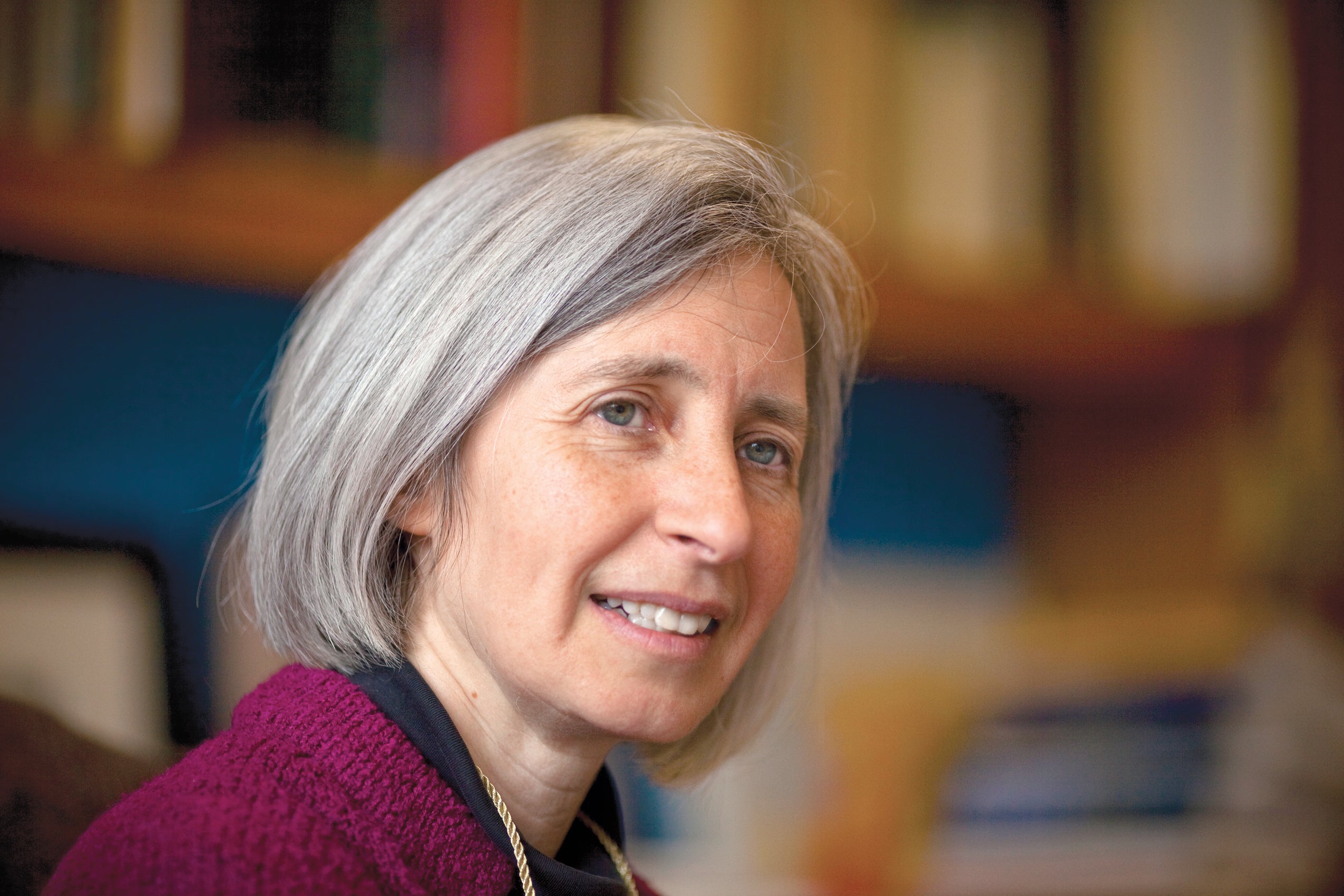Law increasingly crosses physical borders; legal work undertaken by members of the Harvard Law School community increasingly crosses borders of disciplines and professions. From 1L property law to laws of war, physical boundaries supply both facts significant to law and the metaphor of borders used in defining legal rights and concepts.
Students in the Legal Aid Bureau this spring represented a client who brought her children across the border from Canada following years of sexual and emotional abuse. The advocates built arguments under the Hague Convention on the Civil Aspects of International Child Abduction.
Professor John Coates teamed up with Harvard Business School’s Suraj Srinivasan to leverage insights from 120 papers in accounting, finance, and law in a forthcoming article that evaluates the costs and benefits of the Sarbanes-Oxley Act of 2002—the federal law that set new and enhanced standards for all U.S. public company boards, management and public accounting firms.
The Berkman Center for Internet & Society joined with UNICEF in April.They convened leaders from diverse personal, professional and geographical perspectives (40 percent of the participants were from the global South) for “Digitally Connected.” This working conference explored potential actions to improve digital connections for youth around the world. Such work builds on ways to give voice to the disconnected while also supporting young people’s participation in creating stories and policies and learning with safety, dignity, and efficiency.
This issue of the Bulletin explores border-crossing in various contexts. Consider constitutional design by crossing the borders into decision theory, game theory, welfare economics, political science and psychology. This is what Professor Adrian Vermeule ’93 does in his important new book, “The Constitution of Risk,” which examines the elements of a constitution in terms of managing political risk.
Professor of Practice Urs Gasser LL.M. ’03 and his students cross national and conceptual borders in the seminar Comparative Online Privacy. And in a separate project, Professor Gasser links students from across the university in the Digital Problem Solving Initiative to tackle real challenges, such as how to organize streams of student data from online classes without violating students’ privacy rights.
Financial risk regulation under the Volcker Rule affects proprietary trading by banks both in the United States and around the world. Our story crosses national borders and bridges theory and practice as it examines support for and criticism of the rule as expressed by faculty and alumni.
Immigration lawyer Margaret Stock ’92, awarded a 2013 MacArthur Foundation “genius” grant, finds unusual opportunities at the intersection of national security and immigration law, involving soldiers who risk their lives for this country without the benefits of citizenship. Debbie Anker LL.M. ’84, the HLS clinical professor who introduced Stock to immigration law, founded the school’s Immigration and Refugee Clinic, which this year is celebrating its 30th anniversary and its ongoing commitment to help individuals as they cross borders. Another story here follows clinic students to the Arizona-Mexico border, where they examined the journeys taken by undocumented individuals through the desert, border enforcement and humanitarian aid.
Where is the border between student sports and athletic business? This is the question lying behind two current legal questions: Should labor law regulate intercollegiate sports, and should a student-athlete be viewed as an employee? Our faculty, students and alumni consider what should happen as intercollegiate sports cross the border between education and lucrative entertainment. In addition, HLS Professor I. Glenn Cohen ’03 of the HLS Petrie-Flom Center for Health Law Policy, Biotechnology, and Bioethics crosses the river as part of a new Harvard Medical School initiative funded by the National Football League Players Association; Professor Cohen and the center will lead projects addressing legal and ethical issues influencing football player health and well-being.
Law can serve as a bridge not only to sports but also to artists and the entertainment world. Bert Fields ’52, one of the nation’s most accomplished entertainment lawyers, shares his insights into fascinating legal work and into his own writing.
Led by Clinical Professor Brian Price, students in our Transactional Law Clinics assist technology and business developers with legal and strategic advice, offering it recently to engineers designing robotic hands, a businessman developing a media hub around barbershops, and low- and middle-income clients enmeshed in dysfunctional condominium associations.
This issue also celebrates the life of John Mansfield ’56, our colleague on the HLS faculty who passed away this spring. Professor Mansfield long crossed borders in his work on law and religion, law and scientific evidence, and law in India, and in his constant probing questions, pursuing truth wherever it could be found.
